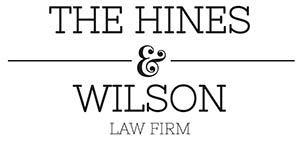Warm weather is great, but all good things are best in moderation. The sun is shining, and summer is just around the corner, which means the workplace has a new seasonal danger – heat exhaustion.
What Is It?
Heat exhaustion, also known as heat illness, is your body’s reaction to losing too much salt and fluids due to excessive sweating and heat exposure. Employees that are elderly, suffer from high blood pressure, or work in hot temperatures, are at the highest risk of experiencing heat illness. The following symptoms are your body’s way of telling you that you are undergoing heat exhaustion.
- Excessive sweating.
- High body temperature.
- Headaches, dizziness, and nausea.
- Fatigue.
- Irritability.
- Thirst.
- Urinating significantly less.
- Fainting.
- Clamminess.
- Muscle cramps.
What are the exact causes of heat illness that one might experience at work? There are more than you’d think.
- Loss of fluids and salt that is not being replenished.
- Extremely high temperatures.
- Not allowing the body to cool off periodically.
- Strenuous physical activity.
- Wearing darkly colored or insulated clothing, or heavy gear.
- Obesity, alcohol, and drug use increase the risk.
Failing to treat heat illness can lead to something much more serious – heat stroke. Having a heat stroke can cause shock, organ failure, or even brain damage. If you or a coworker show symptoms of heat exhaustion, complete the following steps suggested by the CDC right away.
- Go to the emergency room for a medical evaluation, or call 911 if care is not available.
- Get out of the heat, and rest somewhere cool. A person experiencing heat illness shouldn’t be alone. Ask someone to stay with you until help arrives.
- Drink water, and be sure to continue taking sips periodically.
- Take off unnecessary clothing such as safety gear, socks, shoes, and gloves.
- Use a cold compress on the head, face, and neck.
Prevention
To prevent heat exhaustion all together, it’s important to stay hydrated, take frequent breaks, and wear light clothing. Luckily, there are a few things you can do at work to make prevention simple.
- Bring a water bottle or thermos to work with you every day.
- Keep a cooling bandanna, or a wide-brimmed cap handy.
- Take your entire break time, and don’t skip any breaks.
- Hand-held fans or misters are convenient ways to cool down.
If you are at a higher risk, make sure that your supervisor is aware. It’s also vital to pay attention to the side effects of any prescribed medications you take. Ask your pharmacist or healthcare provider if being in the sun or heat will cause adverse effects.
If The Heat Beats You…
There are countless heat-related workplace injuries and illnesses that will leave you with medical bills, lost wages from missed days of work, and insurers riding your back. Once you’ve reported the workplace accident to your employer, you need to hire a workers’ compensation lawyer to help you ensure that all of your present and future personal injury costs are covered. Here’s what an experienced attorney can do for you.
- Collect evidence of your personal injury, and that you were injured in the workplace.
- Defend you against any employer retaliation.
- Help you with your workers’ compensation claim, and completing other important legal paperwork.
- Calculating the value of your injury.
- Handling communications with insurers who will attempt to twist your words against you.
- Negotiating a settlement that is high enough to cover all of your expenses.
- Guide you through the workers’ compensation process.
If you’ve been hurt on the job, contact our Columbia law firm today to schedule an initial consultation. During your consultation, you’ll receive free legal advice from a compassionate personal injury attorney near you.







